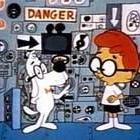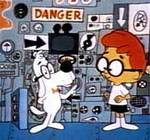-
Posts
2,171 -
Joined
-
Last visited
Content Type
Profiles
Forums
Events
Blogs
Everything posted by jazztrain
-
I've always heard (and used) man-DELL.
-
I've always heard it with the accent on the first syllable.
-
He appears to be in the San Diego area: http://promusic325.org/ContentPages/InstructorsContent.html
-
Yes, Lester Bowie.
-
Here's at least a partial list of Prevue issues. Only some of them were reissues of Xanadu LPs: 1. Various. Jazz World of Don Schlitten. 2. Jimmy Heath. Picture of Heath. 3. Kenny Barron. At the Piano. 4. J. R. Monterose. The Message. 5. Red Rodney. 1957. 6. Coleman Hawkins. Jazz Tones. 7. Sonny Criss. Saturday Morning. 8. Jimmy Raney. Solo. 9. Thelonious Monk. Live At the Village Gate. 10. Lucky Thompson. Brown Rose. 11. Tommy Flanagan. Trio & Sextet. 12. Barry Harris. Plays Tadd Dameron. 13. Cecil Payne & Duke Jordan. Brooklyn Brothers. 14. Jimmy Raney. Live In Tokyo. 15. Elmo Hope. The Beacon & Celebrity Trio Recordings. 16. Ray Brown. Blues for Jazzbo. 17. Willie Dixon. I Think I Got the Blues. 18. Willie Dixon. What Happened to My Blues? 19. Teddy Wilson & Marian McPartland. Elegant Piano. 20. Doug Raney. Everything We Love. 21. Ray Brown. Moonlight in Vermont. 22. Hank Jones. Darji's Groove. 23. Jimmy Raney. The Influence. 24. Barry Harris. Tokyo: 1976. 25. Marian McPartland. Live at the Carlyle. 26. Dave McKenna. Cookin' at Michael's Pub. 27. Ted Curson. Plenty of Horn. 28. Al Cohn & Jimmy Rowles. Heavy Love.
-

Haruki Murakami
jazztrain replied to JohnJ's topic in Jazz In Print - Periodicals, Books, Newspapers, etc...
It's not uncommon to use astronomical in this sense when speaking of odds ("a million to one") rather than chances or likelihood (one chance in a million). Flanagan played and recorded both tunes during the same concert in July 1977 at Montreux (Pablo Live album "Montreux '77"), so it's not so unlikely that he might have played them together on other occasions. Flanagan had also recorded "Barbados" more recently in April 1990 on "Beyond the Blue Bird" (Timeless). Of course it must have been quite a surprise to Murakami when it happened. -
Bertrand: Here's the answer to your first question: Rose Room (Art Hickman, Harry Williams) Mary Osborne (g), Leon Prima (t), Julian Lane (tb), Irving Fazola (cl), Pete Lauderman (p), Frank Frederico (g), Bunny Franks (b), Charlie Drake (d). 2nd Esquire Concert, Municipal Auditorium, New Orleans, January 17, 1945. Blues in Mary's Flat (Osborne) Oops My Lady (Osborne) Mary Osborne (g), Sanford Gold (p), unknown b and d. New York City, mid 1946.
-
Berry also appears on a couple of Keynote sessions, including the "Little Jazz" and His Trumpet Ensemble session along with Roy Eldridge and Joe Thomas.
-

is it possible to repair scratches in vinyl?
jazztrain replied to chewy-chew-chew-bean-benitez's topic in The Vinyl Frontier
It is possible to repair some locked grooves and some skips by very carefully using a suitable implement to reopen and/or realign the damaged grooves. In years past (when I had somewhat better eyesight, more patience, and more free time), I had some success in using a sewing needle to help reestablish the intended stylus path in the vinyl in some damaged LPs with the result that they became playable. It was only worth the effort in cases where a better copy of the record was unavailable and where the duration of the damage in the vinyl was limited to a few revolutions. Of course, there was also the risk of botching the operation (but if you were starting with a damaged record, what did it matter?). If you're tempted to give this approach a try, it's best to practice on something relatively worthless to develop your technique. -
"Somethin' Special" - Groove Holmes Clifford Scott appears as "Joe Splink"
-
"The College Concert" was reissued in Japan. I got a CD copy from a member of this forum a month or two ago. The one on Columbia is titled New Groove and was reissued on Collectables. The Impulse! is Ask Me Now! I really love the one he did with Henry "Red" Allen: The College Concert of Pee Wee Russell and Henry "Red" Allen which is also on Impulse! and shamefully never reissued on CD to the best of my knowledge.
-
beast part? gunna? its? did'nt? Please, just go away...
-
Waller, for the most part, did not choose the music recorded at the "Rhythm" sessions. My understanding is that he often saw the music for the first time at the recording session and put arrangements together wtih his group on the spot. Admittedly, much of the material was fluff. Part of the fun is seeing (or should I say hearing) how Waller skewers and makes fun of the material.
-
A few I like that haven't been mentioned yet: Willie "The Lion" Smith and Don Ewell. Grand Pianos. Dick Wellstood and Dick Hyman. Stridemonster.
-

New list of Jazz cds for sale. free shipping
jazztrain replied to jazzmusicdepot's topic in Offering and Looking For...
PM sent on Evan Christopher. -
Some of sides by the Louisiana Sugar Babes (1928) include Fats Waller on organ and Garvin Bushell on clarinet.
-
Coincidentally, I received an e-mail (to which I have no access at the moment) yesterday indicating that Sathima Bea Benjamin plans to make all of her recordings available in a digital format (presumably via download?) later this year. I'll post the information later if possible.
-
My favorites by Collette are "Nice Day" and "Man of Many Parts." Both were recorded for Contemporary and are (or were) available as OJCs. I enjoy his clarinet playing which is clean and almost polite at times but also recognizable in part due to its understated quality. The title track to "Nice Day" is particularly pleasant. Collette also appears on and solos occasionally on other Contemporary albums by the likes of Barney Kessel, Red Norvo, and Lyle Murphy. His dates with Chico Hamilton are also worthwhile. The two "Swinging Shepherds" albums on Emarcy are less memorable (unless you're a big fan of jazz flute -- each has several flutists) except for their distinctive covers.
-
Not to be confused with the tune of the same name "The Night Has A Thousand Eyes" written by Buddy Bernier and Jerome Brainin and recorded by many jazz musicians (as some of my listeners may know based on a recent program...)
-
Ghost: I can't provide anything definitive, but there's an earlier reference here: http://www.organissimo.org/forum/index.php...1531&st=150 A google search also turns up a reference in a Bixology discussion group (full access to which is not available to me at the moment) to what appears to be a projected 7-CD set on Red. This is all I can get: >>> The Bixography Discussion GroupPS One thing is for sure: I'll be one of the first to order the Mosaic set of 7 CDs on Red Nichols. I extend my "thanks" to Scott W. ... www.network54.com/.../"%3BRed+Nichols+is+of+no+importance.+"%3B+A+different+translation- - 6k - Supplemental Result - Cached - Similar pages The Bixography Discussion GroupRed Nichols on Mosaic?. Albert Haim. on Dec 31, 2006. Red Nichols on Mosaic. Lennart Herlin. on Jan 1, 2007. Red sails in the summer. Scott Wenzel ... www.network54.com/Forum/27140/message/1167508453/Red+Nichols+with+Oreste- - 11k - Supplemental Result - Cached - Similar pages [ More results from www.network54.com ] >>> Here's a bit more: There's a reference to Dick Sudhalter working on notes for a Red Nichols CD Mosaic box in the following Doug Ramsey "Rifftides": http://www.artsjournal.com/rifftides/archi...udhalter_c.html
-
Ghost: I can't provide anything definitive, but there's an earlier reference here: http://www.organissimo.org/forum/index.php...1531&st=150 A google search also turns up a reference in a Bixology discussion group (full access to which is not available to me at the moment) to what appears to be a projected 7-CD set on Red. This is all I can get: >>> The Bixography Discussion GroupPS One thing is for sure: I'll be one of the first to order the Mosaic set of 7 CDs on Red Nichols. I extend my "thanks" to Scott W. ... www.network54.com/.../"%3BRed+Nichols+is+of+no+importance.+"%3B+A+different+translation- - 6k - Supplemental Result - Cached - Similar pages The Bixography Discussion GroupRed Nichols on Mosaic?. Albert Haim. on Dec 31, 2006. Red Nichols on Mosaic. Lennart Herlin. on Jan 1, 2007. Red sails in the summer. Scott Wenzel ... www.network54.com/Forum/27140/message/1167508453/Red+Nichols+with+Oreste- - 11k - Supplemental Result - Cached - Similar pages [ More results from www.network54.com ] >>>
-
Marsalis Music Honors Alvin Batiste is his first recording in ten years. There are 10 songs totalling 64 minutes. The songs are Batiste originals except Skylark. Only eight of the ten songs are Batiste originals. "I Wonder Where Our Love Has Gone" is a Buddy Johnson tune.
-
The Hep label has just reissued the Stuff Smith and His Onyx Boys sides (with some previously unrealeased airchecks) from 1936-1937. This is essential material, and one expects that the transfers would be better than those on some previous reissues.
-
In that case, here are a few more off the top of my head: Coleman Hawkins / Buck Washington Coleman Hawkins / Freddy Johnson Bob Wilbur / Dick Wellstood Kenny Davern / Dick Wellstood Houston Person / Bill Charlap Joe Temperley / Dave McKenna Dick Johnson / Dave McKenna Gary Foster / Alan Broadbent Paul Desmond / Dave Brubeck
_forumlogo.png.a607ef20a6e0c299ab2aa6443aa1f32e.png)
